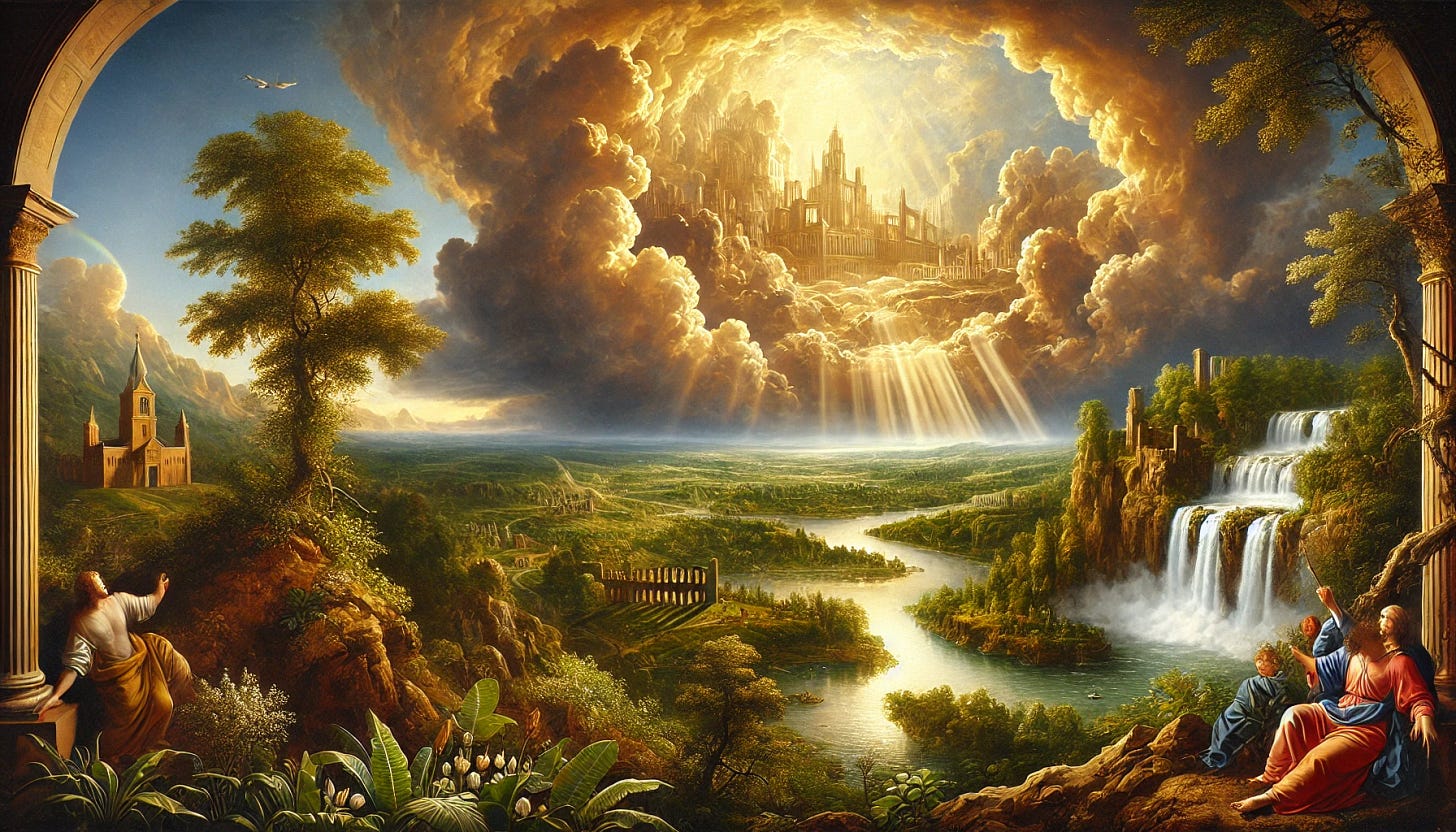Click here to read the passage.
Click here to read the notes and questions for Revelation 20:11-15.
Main Idea: God will establish a new heaven and a new earth, where Christ will spend eternity among His redeemed people in perfect and constant communion.
The last two chapters of Revelation brings us to the end of the Apocalypse and to the end of the Bible. It is a fitting conclusion to the historical drama of redemption that began in Genesis 1–3.
It is interesting to compare the beginning of Genesis with the end of Revelation. Look at this chart:
So what is in store for Christians in heaven?
Heaven is mentioned more than 500 times in the Bible and 50 times in Revelation. Three heavens are mentioned in the Bible:
The earth’s atmosphere, where the clouds are and the birds fly.
The starry heavens, where the planets, sun, and stars reside.
The unique dwelling place of God, where good angels and saints will live forever and ever.
That third heaven has not yet been created, and no one is there right now, according to Daniel Akin in the commentary “Exalting Jesus in Revelation.” Believers who die will immediately go to be with the Lord (2 Corinthians 5:8), but that is an intermediate place of blessing, not our final heavenly home.
Revelation 21–22 describes our eternal home, the third heaven.
One major question is this: Will God renovate the old creation or will he completely recreate a new creation?
From Akin:
“Might it be that there is something of a transformation of the old order through the destruction of the old order? I think we are on good ground to affirm some type of continuity between the old order and the new order, though the new will be radically superior. Perhaps the judgment is one of cleansing rather than total destruction. What we can say for certain is there will be a whole new reality, a new kind of existence in which all the negatives of the ‘first’ world will be removed, all the discoloration by sin will be gone.”
Pastor Chuck Swindoll highlights 12 things that will not be present in eternity, things we will not miss:
No more sea—because chaos and calamity will be eradicated (21:1).
No more tears—because hurtful memories will be replaced (21:4).
No more death—because mortality will be swallowed up by life (21:4).
No more mourning—because sorrow will be completely comforted (21:4).
No more crying—because the sounds of weeping will be soothed (21:4).
No more pain—because all human suffering will be cured (21:4).
No more thirst—because God will graciously quench all desires (21:6).
No more wickedness—because all evil will be banished (21:8, 27).
No more temple—because the Father and Son are personally present (21:22).
No more night—because God’s glory will give eternal light (21:23–25; 22:5).
No more closed gates—because God’s doors will always be open (21:25).
No more curse—because Christ’s blood has forever lifted that curse (22:3).
Questions
Looking at the attached chart that compares the first few chapters of Genesis and the last few chapters of Revelation, what strikes you about the parallels and differences?
Verse 3 describes God dwelling with His people. How does this compare to the way God dwells with us today?
God says in Verse 5, "I am making everything new!" How does this renewal relate to the themes of redemption and restoration throughout the Bible?
In Verse 6, God describes himself as the Alpha and the Omega. How does this description enhance your understanding of God's eternal nature and His role in creation and salvation?
Verse 7 speaks of those who overcome. What does it mean to “overcome” in the Christian life, and how can we live as overcomers?
How do you practice communion with God now? How will communion with God in eternity be similar and different?
Out of Swindoll’s list of things that will not be present eternity, which one did you look forward to the most and why?





